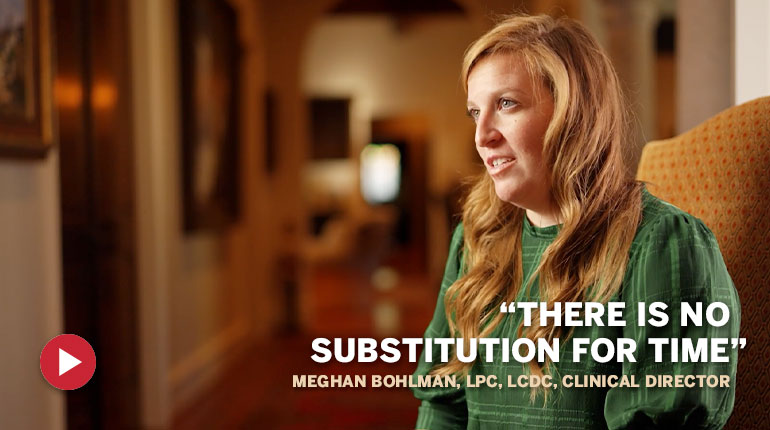How Time is Our Greatest Asset in Addiction Treatment: A Message From Our Clinical Director Meghan Bohlman
Video Summary:
Meghan Bohlman, LPC, LCDC, and Clinical Director at Burning Tree Ranch discusses our facility’s advantage when it comes to treating chronic relapse clients. When given the necessary time in a long-term treatment setting, the complex needs of clients who have previously struggled with shorter-term programs can be carefully addressed.
Together with giving clients the time needed to make a transformative recovery, Burning Tree emphasizes a high level of accountability from both staff and peers in the treatment community to create an environment where our clients are consistently held to higher standards than they have been in the past.
Time gives our staff the ability to provide all the necessary tools that may have been missed in previous treatment attempts, and it gives our clients enough time to learn the skills they need to realize a lasting recovery.
Read: Video Transcript
There is no substitution for time. Time gives us the ability to treat all of the components that are active for all of the addicts and alcoholics that we treat.
I’m Meghan Bohlman, I’m the clinical director at the Ranch. I joined that team in 2017. A lot of our clients have done 30, 60, 90-days and for whatever reason, they have not been able to be successful.
Our clients are chronic relapsers, meaning they have continued failed attempts at treatment and continued failed attempts at sobriety. And so time gives us an opportunity to look at all the things that may have been missed along the way.
Burning Tree offers high accountability both from staff and from clients. It’s one of the first times our clients are in an environment where they’re held to a high level of accountability by their peers.
I believe Burning Tree arms our clients with all the skills they might need, whether they be life skills, or immersion in the twelve steps, or trauma work, or work with a psychiatrist. I believe we arm them with all of the skills that may be lacking or whatever’s been missed for them to achieve that life of sobriety.





